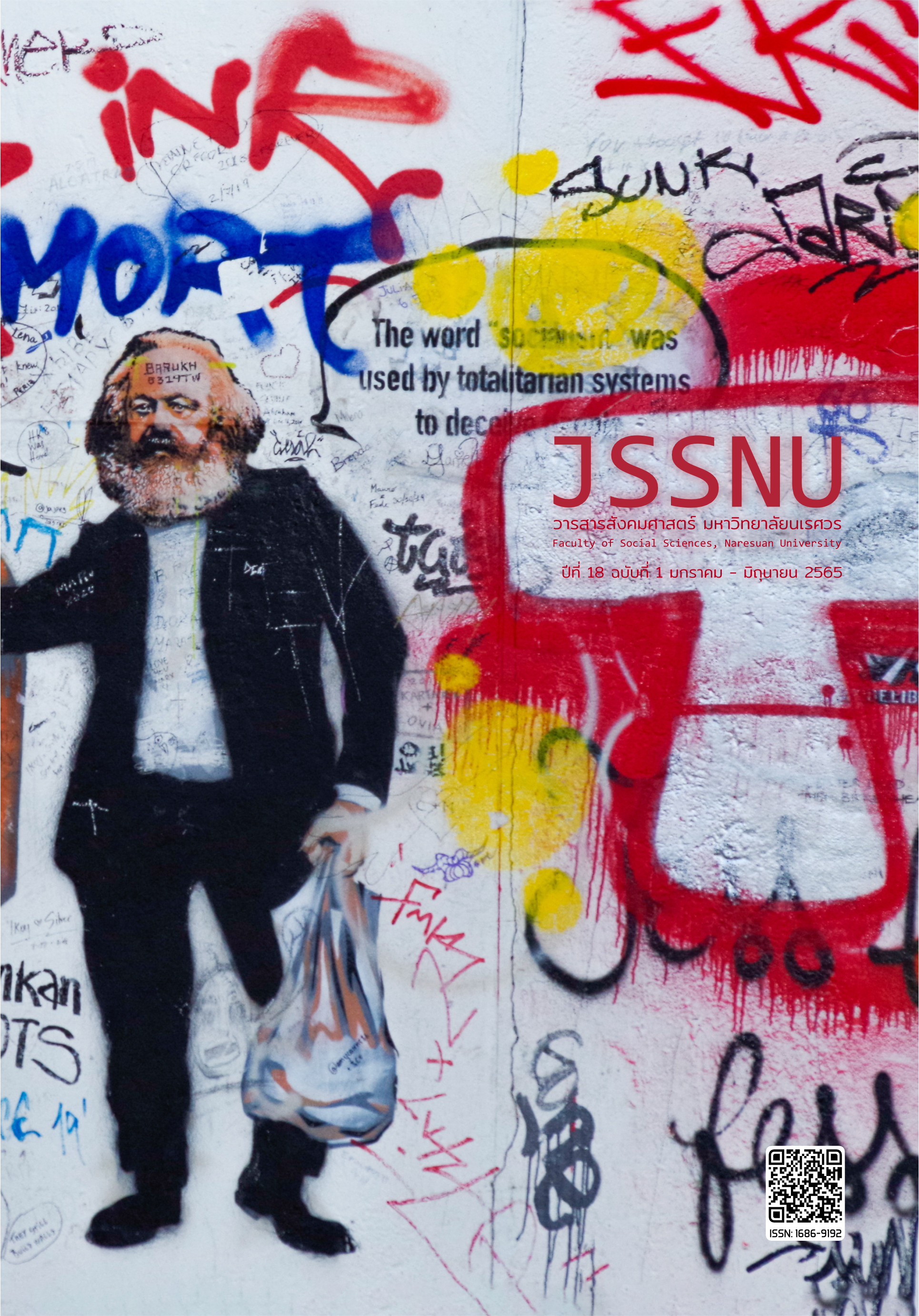Prevention of Corruption in Public Procurement: The Role of Independent Observers regarding the Integrity Pact Approach
Main Article Content
Abstract
This research critically explores the role of the Independent Observers (IOs) regarding the Integrity Pact (IP) approach. The objectives are fourfold: 1) to examine arrangements of the IP approach prescribed in the Public Procurement and Supplies Administration Act 2017 and the Notifications of the Anti-Corruption Cooperation (ACC) Committee; 2) to investigate the duties of the IOs in the procurement system; 3) to identify the contribution of the IP approach to
prevention of corruption in public procurement; and 4) to identify issues and challenges the IOs face while discharging their duties. Based on qualitative methods with in-depth interviews of 50 samples, the findings of this research demonstrate that the IP approach and the role of the IOs prove an effective means for anti-corruption in public procurement; in addition, the role of the IOs also promotes social accountability enhancing citizen engagement in exacting public accountability. However, the findings also highlight attempts of political interference, a lack of IOs’ involvement during the drafting of the Terms of Reference (TOR), and misconceptions of public officials on the role of the IOs as fundamental issues.
Downloads
Article Details

This work is licensed under a Creative Commons Attribution-NonCommercial-NoDerivatives 4.0 International License.
References
Boossabong, P., & Chamchong, P. (2018). The importance of network in public policy and governance: Critical perspectives and an analytical framework for going beyond an empty signifier. Journal of Social Sciences, Naresuan University, 14(2), 113-136. [in Thai].
Bryman, A. (2012). Social research methods (4th ed.). Oxford: UOP.
Cabinet Resolution. (June 29, 2021). Guidelines for conducting an integrity pact by state agencies involved in procurement and joint investment under other laws, apart from the government procurement and supplies management act B.E. 2560. (2017). Bangkok: The Secretariat of the Cabinet.
Comptroller General’s Department. (2020). The comptroller general’s department disclosed that ‘the Integrity Pact program’ helped save 7.3 billion of government budget, having government agencies involved in signing the agreement for more than 106 procurement programs. Retrieved April 30, 2020, from https://gnews.apps.go.th/news?news=54283 [in Thai].
Digital Government Development Agency. (2021). Thai government spending. Retrieved April 30, 2021, from https://govspending.data.go.th/dashboard/1
Goetz, M. A., & Jenkins, R. (2001). Hybrid forms of accountability: Citizen engagement in institutions of public-sector oversight in India. Public Management Review, 3(3), 363-383.
Jenkins, R. (2007). India's unlikely democracy: Civil society versus corruption. Journal of Democracy, 18(2), 55-69.
Jones, S. D. (2009). Curbing corruption in government procurement in Southeast Asia: Challenges and constraints. Asian Journal of Political Science, 17(2), 145-172.
Joshi, A. (2007). Producing social accountability? The impact of service delivery reforms. IDS Bulletin, 38(6), 10–17.
Knack, S., Biletska, N., & Kacker, K. (2017). Deterring kickbacks and encouraging entry in public procurement markets: Evidence from firm surveys in 88 developing countries (World Bank Policy Research Working Paper No. 8078). Washington, DC: World Bank.
Koppell, G. S. J. (2005). Pathologies of accountability: ICANN and the challenge of“multiple accountabilities disorder”. Public Administration Review, 65(1), 94-108.
Malena, C., Forster, R., & Sigh, J. (2004). Social accountability: An introduction to the concept and emerging practice (Social development papers: Participation and civic engagement No. 76). Washington, DC: World Bank.
Office of the National Anti-Corruption Commission. (2019). Annual report of fiscal year 2018. Nonthaburi: Division of Policy and Strategy Office of the National Anti-Corruption Commission. [in Thai].
Prateeppornnarong, D. (2019a). Key ethical principles for researchers in the field of criminology and criminal justice system. University of Thai Chamber of Commerce Journal: Humanities and Social Sciences, 39(2), 137-150. [in Thai].
Prateeppornnarong, D. (2019b). The independent systems for handling police complaints in Thailand: A brief assessment. Thai Journal of Public Administration, 17(1), 9-33.
Prateeppornnarong, D. (2019c). The independence of the Public Sector Anti-Corruption Commission. Sukhothai Thammathirat Open University Journal, 32(1), 28-42. [in Thai].
Prateeppornnarong, D. (2021a). Prevention of corruption in public procurement: The role of independent observers regarding the integrity pact approach (Research Report). Bangkok: Graduate School of Public Administration National Institute of Development Administration. [in Thai].
Prateeppornnarong, D. (2021b). Fighting corruption while having hands tied: A case study of Thailand’s public sector anti-corruption commission. Journal of Asian and African Studies, 56(2), 320-334.
Samukkethum, S. (2016). Accountability and public administration. Romphruek Journal of Krirk University, 34(1), 42-79. [in Thai].
Søreide, T. (2002). Corruption in public procurement causes, consequences and cures (CMI Report R 2002:1). Bergen: Chr. Michelsen Institute.
Tangkitvanich, S., & Thamwanich, T. (2012). Transparency in government procurement: A case study of Thailand. N.A.C.C. Journal, 5(1), 48-66. [in Thai].
Thabchumpon, N. (1998). Grassroots NGOs and political reform in Thailand: Democracy behind civil society. Copenhagen Journal of Asian Studies, 13, 31-59.
Thomas, G. (2013). How to do your research project: A guide for students in education and applied social sciences (2nd ed.). London: SAGE.
Water Integrity Network [WIN]. (2010). Integrity Pacts in the water sector: An implementation guide for government officials. Berlin: Transparency International.
Ziller, J. (2001). European models of government: Towards a patchwork with missing pieces. Parliamentary Affairs, 54(1), 102–119.


